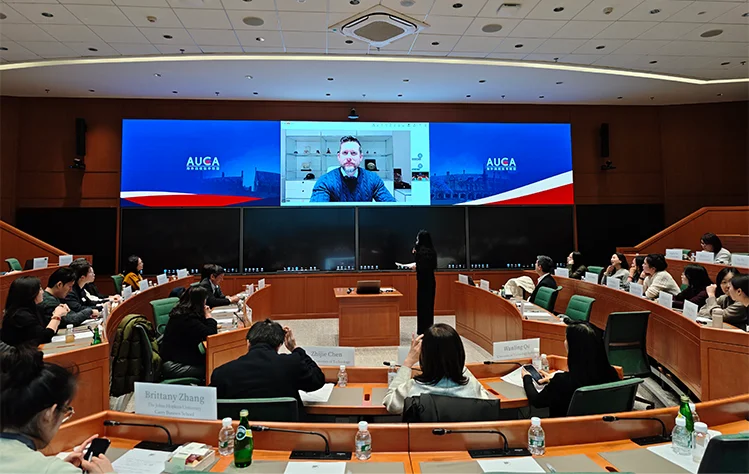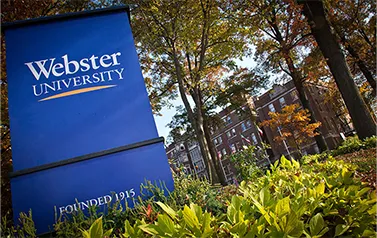Dutch immigration law restricts who can enter the Netherlands. Students wishing to study in the Netherlands have to meet certain requirements, which vary depending on nationality and the duration and purpose of stay.
Procedures and Frequently Asked Questions
MVV residence permit procedure
You will need a student visa (MVV) and a residence permit (VVR) if you are:
- Entering the Netherlands as a degree-seeking student or study abroad student for a period of 90 days or longer.
- Not a citizen of one of the following countries: EU, Japan, Norway, U.S., Australia, Liechtenstein, South Korea, Vatican City, Canada, Monaco, Switzerland, Iceland, New Zealand or U.K.
Please note only EU, Iceland, Liechtenstein, Norway and Switzerland students do not need a residence permit at all. If your country is listed above, please go to the section, “Do I only need a residence permit?”
VVR Residence Permit Procedure
Do I only need a residence permit, not a visa? You will need a residence permit (VVR), but not an entry visa, if you are:
- Entering the Netherlands as a degree-seeking student or study abroad student for 90 days or longer.
- A citizen of one of the following countries: Australia, Canada, Japan, Monaco, New Zealand, South Korea, Vatican City, U.K., and U.S.
Webster Leiden Campus's Immigration Coordinator will take care of your student residence permit application. However, please note that we can only do so if you meet the following requirements:
- You have a valid passport.
- You have been admitted to a full-time program.
- You can demonstrate that you have sufficient funds to cover:
- 1,218 euros monthly allowance for living expenses for 12 months (i.e., 14,616 euros) plus
- One year's tuition costs (minimum).
The Immigration Coordinator will apply for your residence permit after receipt of the following documents:
- A copy of your passport.
- A financial statement.
- Completed forms for the residence permit application.
The Immigration Coordinator will submit your residence permit application to the Dutch Immigration Department (IND) prior to your arrival to the Netherlands. The Immigration Coordinator will send you the forms by email, and you will need to fill them out and return them by email. The application procedure usually takes two to six weeks, but it can take up to three months.
Upon arrival in the Netherlands, you will be required to book an appointment with IND, either for collecting your residence permit card or depending on your nationality/situation, to arrange to have your photograph and biometrics taken at the IND locket. In case of the latter, this is needed to create your residence permit card. Once you provide your biometrics, the IND will inform Webster when your residence permit card is ready, and the immigration team will inform you by email when your card is ready for pickup. You will then need to book an appointment to collect the card. Student residence permits are issued for the duration of the study program, with an additional three months.
You must be a full-time degree-seeking student following courses at Webster Leiden Campus to qualify for a Dutch Residence permit.
According to the Modern Migration Policy, students with a residence permit for the purpose ‘study’ need to pass and obtain at least 50% of the statutory number of US credits (Dutch ECTS) per academic year in order to keep their residence permit for the next study year. Additionally, students are required to study full time as degree-seeking students.
What does this mean?
A full academic year consists of 30 credits (60 ECTS). To keep your residence permit you will need to attain at least 15 credits (30 ECTS).
Ending/starting from student entry term:
UG students: Fall I and Spring I
Grad students: Summer, Fall I, Fall II, Spring I, Spring II
If the minimum credits/ECTS are not attained, we will need to determine the cause. If it turns out that a student has not put in enough effort or cannot deal with the study load or level, the educational institution will have to cancel her/his enrollment and will de-register the student with the IND. This means that the residence permit for the purpose of study will be withdrawn.
The residence permit is proof that you legally reside in the Netherlands and it is therefore important that you have it with you at all times. If you lose it or it gets stolen, you need to take action immediately.
- Report the loss or theft to the local police the same day and ask for a police report.
- Fill in the form that can be found on the IND website under “Lost documents — Application for a residence permit,“ add a copy of the police
report and send it to the IND at the following address:
Immigratie- en Naturalisatiedienst
Postbus 245
7600 AE Almelo
Important: Keep a copy of the police report with you at all times until your new residence permit is issued so that if for any reason anyone asks you for your residence permit you can prove it was stolen or lost.
The "Orientation Year for Graduates Seeking Employment" is a residence permit aimed at retaining foreign talent for the Dutch labor market. You have up to three years after graduation to apply for this one-year residence permit.
For more information on how to apply, please visit the IND website.
You must return your residence permit card to the IND when you leave the Netherlands. A reason for leaving the Netherlands might be that you have graduated from Webster Leiden Campus or you that you have decided to discontinue your studies at Webster Leiden Campus.
Option 1: You can send the residence permit card to the following address:
IND Bureau Documenten
Postbus 7025
8007 HA Zwolle
Option 2: You can make an appointment to personally hand in the residence permit card to the IND by calling 088-0430430.
If you hold a residence permit (VVR) as a student, you are allowed to work in the Netherlands only if you employer has a work permit (TWV). Your employer has to apply for this work permit at the UWV.
In addition, you are only allowed to work for a maximum of 16 hours per week. Instead of these 16 hours a week, you may also do seasonal labor during the months of June, July and August. In both cases the employer must have a TWV.
If an internship is a compulsory part of your study program or for credit, your employer will not need to have a TWV. Instead, you, your employer and your educational institution will need to set up and sign an internship agreement: Standard Internship Agreement (PDF)
Important: There are no exceptions to the above policy. This means that if you want to do a non-mandatory/not-for-credit internship or volunteer work, you must stick to the maximum 16 hours per week and your employer must apply for a work permit for you.
Learn More
Founded in 1915, Webster is an independent nonprofit university with students studying at campus locations in North America, Europe and Asia, and in a robust online learning environment. With its main campus in St. Louis, Missouri, USA, Webster University’s network of faculty, staff, students and alumni forge powerful bonds with each other and their communities around the globe. The University is committed to engaged learning experiences and empowering our students to become catalysts for change. Prepare for your next step and explore our community resources.
Highlights from the Netherlands

Internationalization of Higher Education: Practices and Challenges of ‘Going Global’
February 5, 2026

Webster University and Arcadia Abroad Partner to Expand Study Abroad Opportunities
January 21, 2026
Global Student Leadership Summit Empowers Students to Lead Across Borders
May 27, 2025
From May 18 to 23, a group of 23 undergraduate student leaders from across the Webster global network gathered at the...
